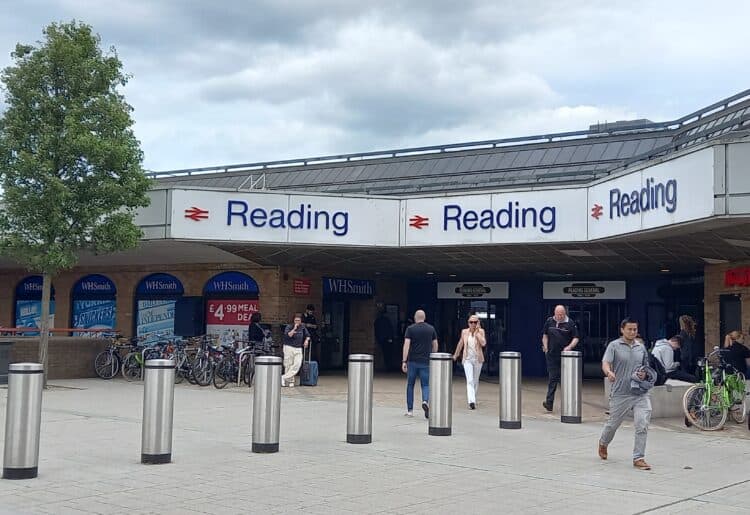SOUTH Western Railway and Great Western Railway have announced major reductions to services due to industrial action by staff through August.
Strikes by the National Union of Rail, Maritime, and Transport Workers, ASLEF, and TSSA unions will cause severe disruption to rail services, leading to significantly reduced timetables.
With industrial action planned for Saturday, August 13, Thursday, August 18, and Saturday, August 20, rail travel is expected to be limited and extremely busy.
Friday, August 12
Rail services will run as usual, but with small reductions to late night services and a high likelihood of increased business on many services.
Saturday, August 13
Extremely limited services will operate from Bristol Temple Meads to London Paddington, Reading to Oxford, and Reading to Basingstoke.
No other GWR services will be available.
SWR will not be affected by the planned ASLEF strike action.
Sunday, August 14
While local and stopping services will operate as usual, but will see considerable disruption as well as high levels of business.
Long-distance routes, such as those from London Paddington to Bristol Temple Meads, to Swansea, to Plymouth, and to Oxford, will operate on a reduced frequency.
Monday-Wednesday, August 15-17
Normal timetables will operate, with minor changes to late night services.
Thursday, August 18
A significantly limited service will run, with no services operating on the Berkshire and Hampshire line, the North Downs line to Gatwick, the South Wales main line, the Wessex main and heart of Wessex lines, TransWilts, Severn Beach, North and South Cotswolds lines, Cornwall lines, Devon lines, and Worcester and Gloucester services.
SWR will operate four trains per hour in each direction between London Waterloo and Windsor and Eton Riverside via Hounslow, and two semi-fast trains per hour in each direction between London Waterloo and Basingstoke.
It will also operate four trains per hour in each direction between London Waterloo and Woking, and two fast trains per hour in each direction between London Waterloo and Southampton Central.
Friday, August 19
Considerable disruption will still be taking place, with a reduced level of service through the day and a high likelihood of very busy services.
Transport for London’s Overground and Underground services will be subject to strikes, with connecting services to SWR highly likely to be cancelled.
Saturday, August 20
A significantly limited service will run, with no service between London Paddington and Bristol Temple Meads, Cardiff and Bath, or Bristol and Exeter.
No services will operate on the Berkshire and Hampshire line, the North Downs line to Gatwick, the South Wales main line, the Wessex main and heart of Wessex lines, TransWilts, Severn Beach, North and South Cotswolds lines, Cornwall lines, Devon lines, and Worcester and Gloucester services.
SWR will operate four trains per hour in each direction between London Waterloo and Windsor and Eton Riverside via Hounslow, and two semi-fast trains per hour in each direction between London Waterloo and Basingstoke.
It will also operate four trains per hour in each direction between London Waterloo and Woking, and two fast trains per hour in each direction between London Waterloo and Southampton Central.
Sunday, August 21
Services will return to normal levels, with a later start to timetables.
Services are still expected to be busy.
GWR customers who have bought tickets for strike days will be eligible to travel on the day before, and any day up to and including the following Tuesday.
They can also claim a full refund or amend their tickets.
South Western Railway’s Commercial Director, Peter Williams, said:
“Please only travel if absolutely necessary between Thursday 18 and Sunday 21 August as strike action will severely impact our services.
“Those who must travel are urged to carefully check the times of first and last trains and seek alternative means of travel.
“The scale of the action will be incredibly disruptive for our customers with large parts of our network closed on strike days and a late start up on the morning after each strike day.
“First trains will run much later than usual and are likely to be very busy, so please travel later in the day if you can.
“We are sorry that strikes will again cause such disruption.
“We are grateful to our customers for their continued cooperation, patience, and understanding as the rail industry works to bring this damaging nationwide strike action to an end.”
























